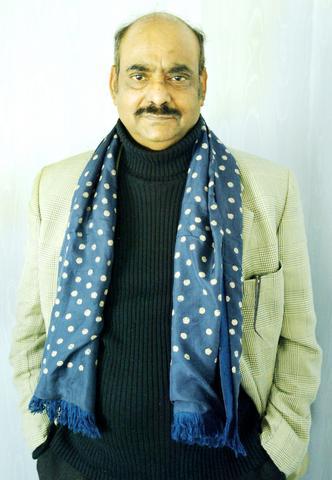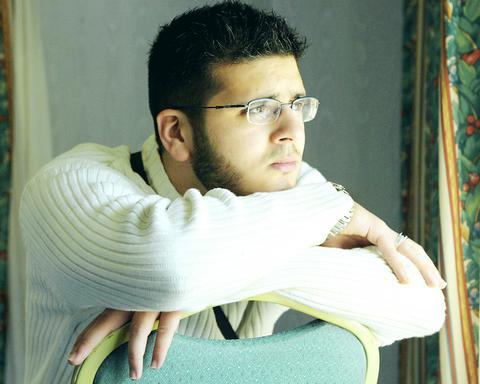As the battle for public opinion over the detentions at Guantanamo Bay, Cuba, heats up, relatives of three of the prisoners there began a tour Sunday of New York and Washington to draw attention to the detainees' situation.
Aymen Sassi, a 21-year-old student from Venissieux, a suburb of Lyon, France, said in an interview Sunday that his older brother's arrest and detention at the Guantanamo naval base had devastated his family. "My father, his whole world collapsed when he heard the news," Sassi said through a translator. Sassi's brother, Nizar, 23, is one of about 650 prisoners held at the base, some for more than two years.
Sassi said that he did not believe that his brother traveled to the Pakistan-Afghanistan area, where he was arrested, to get involved in the region's politics or fighting. Nizar had just purchased a new car and was intending to leave his job with the municipal government to open a restaurant, he said.

His brother "was a normal guy who liked to go nightclubbing," Aymen Sassi said, and had spoken of getting married and settling down. He was in the region because he loved to travel and had already spent considerable time moving throughout Europe, he said.
But Nizar Sassi's restlessness was connected to a need to understand his Arabic heritage and Muslim religion, his brother said. He wanted to learn formal Arabic, rather than the Tunisian version his parents spoke, Sassi said.
The lives of almost all of the prisoners at Guantanamo have received little attention, even as their detention has provoked debate in America and abroad about whether there is any proper legal foundation for it. Anthony Romero, the executive director of the American Civil Liberties Union, which arranged the relatives' visit to the US, said that in addition to the legal challenges pending in the Supreme Court, "We want to put a face to these people."

PHOTO: NY TIMES
The delegation also includes Rabiye Kurnaz, the mother of Murat Kurnaz, a 23-year-old Turkish citizen and German resident; and Azmat Begg, the father of Moazzam Begg, a 36-year-old Briton who has been listed as eligible to face a military tribunal for war crimes.
All three said they were not asserting that their relatives had not committed any crimes. They said they were sad and angry that the detainees had been held for so long without being charged.
The delegation will try to meet with members of the US Congress in the next few days, Romero said.
The military brought charges against detainees for the first time last month, charging two with involvement in war crimes and terrorism. The charges mean that they may soon face a US military commission, the first such proceedings since the end of World War II.
In recent weeks, officials of the US President George W. Bush administration have tried to answer their critics more forcefully. The Defense Secretary, Donald Rumsfeld, and Alberto Gonzales, the White House counsel, have said in speeches that the critics have a basic misunderstanding of the situation when they complain of people being held indefinitely without being charged. They say the detentions are justified because America is at war, and therefore there is no need to charge enemy fighters to keep them imprisoned.
Rumsfeld and Gonzales have described about a dozen of the detainees as senior operatives of al-Qaeda.
But critics say that many, if not most, of the Guantanamo detainees are guilty of little beyond the bad luck to have been caught up in the chaotic aftermath of war. Most were captured in Pakistan or Afghanistan after the fall of the Taliban government.
But even as the government moves toward military tribunals, it has released more than 80 detainees to other countries.
Kurnaz said that the German authorities telephoned her in December, 2001, with the news that her son was a prisoner of the Americans. In one letter sent to her through the International Committee of the Red Cross, Murat wrote, "Don't worry, I am fine and I didn't do anything wrong." Although he was gradually becoming more religious than his parents, Kurnaz said, he had no interest in politics or in any extreme form of Islam.
Begg, a retired banker from Birmingham, said he did not know what his son might have done in Afghanistan or in Pakistan, but insisted that he should face a British court, not a military tribunal.

On April 26, The Lancet published a letter from two doctors at Taichung-based China Medical University Hospital (CMUH) warning that “Taiwan’s Health Care System is on the Brink of Collapse.” The authors said that “Years of policy inaction and mismanagement of resources have led to the National Health Insurance system operating under unsustainable conditions.” The pushback was immediate. Errors in the paper were quickly identified and publicized, to discredit the authors (the hospital apologized). CNA reported that CMUH said the letter described Taiwan in 2021 as having 62 nurses per 10,000 people, when the correct number was 78 nurses per 10,000

As we live longer, our risk of cognitive impairment is increasing. How can we delay the onset of symptoms? Do we have to give up every indulgence or can small changes make a difference? We asked neurologists for tips on how to keep our brains healthy for life. TAKE CARE OF YOUR HEALTH “All of the sensible things that apply to bodily health apply to brain health,” says Suzanne O’Sullivan, a consultant in neurology at the National Hospital for Neurology and Neurosurgery in London, and the author of The Age of Diagnosis. “When you’re 20, you can get away with absolute

May 5 to May 11 What started out as friction between Taiwanese students at Taichung First High School and a Japanese head cook escalated dramatically over the first two weeks of May 1927. It began on April 30 when the cook’s wife knew that lotus starch used in that night’s dinner had rat feces in it, but failed to inform staff until the meal was already prepared. The students believed that her silence was intentional, and filed a complaint. The school’s Japanese administrators sided with the cook’s family, dismissing the students as troublemakers and clamping down on their freedoms — with

As Donald Trump’s executive order in March led to the shuttering of Voice of America (VOA) — the global broadcaster whose roots date back to the fight against Nazi propaganda — he quickly attracted support from figures not used to aligning themselves with any US administration. Trump had ordered the US Agency for Global Media, the federal agency that funds VOA and other groups promoting independent journalism overseas, to be “eliminated to the maximum extent consistent with applicable law.” The decision suddenly halted programming in 49 languages to more than 425 million people. In Moscow, Margarita Simonyan, the hardline editor-in-chief of the